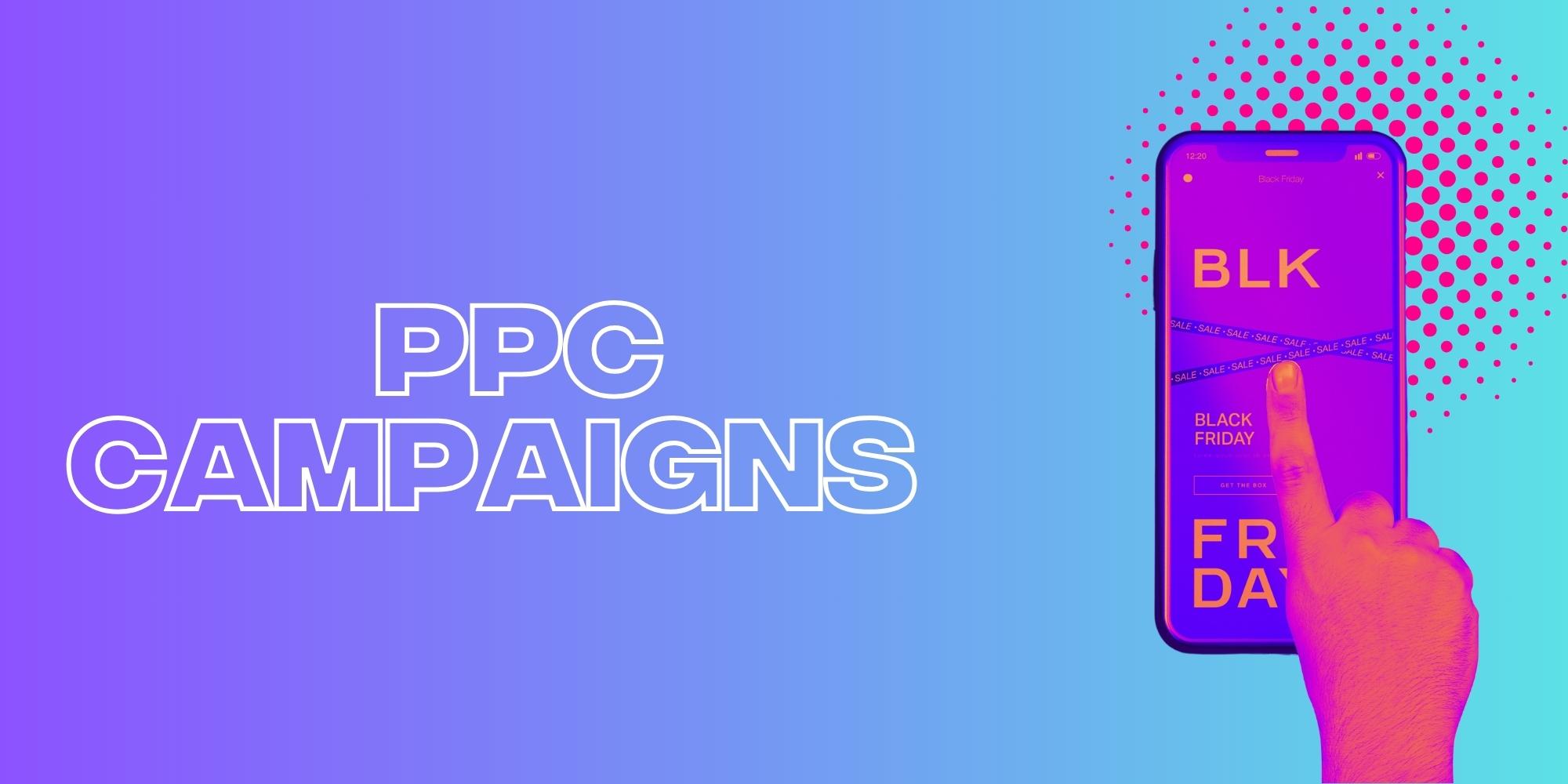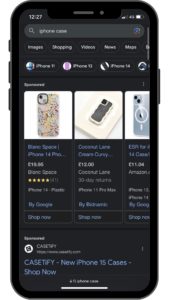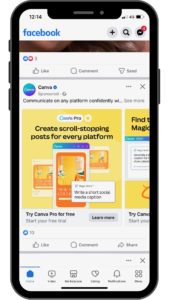Everything You Need To Know About Creating A PPC Campaign
Nov 06, 2023
Social Media Marketing News

The universe of paid advertising is filled with complicated concepts, strange strategies and disconcerting definitions. One such term that might still elude you, is pay-per-click (PPC) marketing.
Whilst it is an essential piece of any marketer’s tool belt, PPC marketing can be difficult to get a proper grasp on.
Don’t worry though, we’ve got you covered.
This pay-per-click guide will give you everything you need to know about a PPC campaign to make sure you get the most out of your paid advertising efforts.
HOW TO CREATE PPC CAMPAIGN
Let’s start right at the beginning.
Pay-per-click marketing, or PPC marketing, is the process of advertisers paying per click they receive on their online advertisements.
PPC marketing focuses on relevance. Advertisers pay to have their ad appear on specific search engine result pages (SERPS) that are relevant. For example, if you are attempting to sell iPhone cases, then you can use PPC to have your products shown at the top of the SERPS when a user types in relevant keywords. Every time a user clicks on your ad, your fee increases.

A lot of different goals can be achieved through your PPC campaign. PPC marketing can help you increase your sales, generate leads and promote brand awareness.
WHERE TO RUN A PPC CAMPAIGN
Now that you’ve got a grip on the basics, it’s time to have a think about where you should be advertising. There is a huge number of online spaces where you can place your PPC ads, but we’ve outlined the biggest ones below.
When considering where to advertise, make sure to keep your potential ROI on each platform in mind. This way, you will be sure to put your money in the right place.
Google Ads
Google Ads is the cream of the crop when it comes to paid advertising, primarily because of its large audience. Google processes 90,000 search queries per second; that’s a lot of potential clicks on your ad.
However, Google’s size also brings with it some negatives. Keywords on Google Ads are incredibly competitive, which leads to higher ad spend.
Bing Ads
Whilst Bing Ads has a much smaller audience than Google Ads, it is still a viable option for your PPC advertising. Due to its smaller audience, your ad spend will be far less than what you would see with Google.
Facebook Ads
Facebook Ads have become very popular in the paid advertising community due to the platform’s specific targeting.
Facebook allows you to target users that will most likely engage with your product; you can target based on demographics, location, behaviours and interests.
On top of this, Facebook allows for native ads and you can utilise the platform to advertise on Instagram as well.

Ad Roll
A highly popular retargeting platform, AdRoll shows your ads to users who have visited your website in the past. Thus, you can target users who have expressed interest in your product previously but might not have followed through.
It is important to note that Google Ads does retarget as well, but only on Google. AdRoll extends its retargeting to social media sites as well.
HOW TO CREATE A PPC CAMPAIG
How do we put all our newfound PPC knowledge into action? With creating PPC Campaign of course!
Set Parameters
First up, is setting parameters. This simply means getting a firm understanding of how your ads are going to achieve your marketing goals. Think about who you wish to target, what theme your campaign will follow, the type of campaign you want to carry out, and how you will measure its success.
Create Goals
Creating a list of goals for your PPC campaign ensures that you are keeping track of your ad spend and your ad success.
When coming up with your goals, make sure they are quantifiable and strictly defined. Some common PPC campaign goals include increasing brand awareness, site traffic and sales.
Select a Campaign Typ
It is essential to select a PPC campaign type that suits your brand and your goals, so make sure to take your time with this step.
Campaign types include display ads, search ads, Google shopping and remarketing.
When selecting a campaign type, consider your audience demographic. What kind of ad do they respond most to? This will help you reach your target audience successfully and effectively.
Carry Out Keyword Research
Attaching relevant keywords to your ad groups communicates with search engines where and when to show your ad. As a result, making sure that your keywords are perfect for your ads is incredibly important.
Before selecting your keywords, research what terms your audience is already responding to. It is important to mention that you are able to switch up your keywords, so keep researching over the course of your PPC campaign and stay up to date.
Use Google Analytics
Finally, Google Analytics is a fantastic free tool that allows you to easily track who is engaging with your pages and which content they are finding particularly attractive. Gaining these insights allows you to alter your created PPC campaign to gain more success.
WHY SHOULD YOU CONSIDER A PPC CAMPAIGN
Now the final question. Why engage with PPC marketing?
PPC marketing is an incredibly effective way to advertise online, so let’s get into its benefits.
Cost Effectiv
PPC ads are cost effective as you have control over how much you spend. As you only pay when a user clicks on your ad that leads to your website or landing page, you are guaranteed to get your money’s worth.
Produce Fast Results
Unfortunately, organic ranking is a bit of a slow process. There is a lot of competition out there to rank highly on SERPS, but PPC shoots you straight to the top. With created PPC campaign, your ad can appear at the top of a SERPS just hours after it is published.
Easy to Control and Test
Controlling targeted keywords, ad placement and budget is super easy with PPC ads. You can also easily run A/B tests, to manage the success of your PPC campaign.
Target the Right Customer
PPC ads allow you to only target the right audiences. This way, your ads don’t get wasted on audiences who aren’t prepared to engage with your brand.
Through PPC ads, you can bid on keywords, target specific demographics and even target past online activity; all ensuring that the eyes on your ads are the most likely to click and engage.
Steer Clear of Algorithm Change
At this moment, the Google algorithm utilises 200 ranking factors to determine how a SERPS page looks and this algorithm is regularly being updated. With PPC ads, any changes to the Google algorithm don’t impact how much traffic your content is getting. You can simply focus on the success of your created PPC campaign, rather than trying to rank highly and gain free traffic.
Rank Despite Low Domain Rating
As we have emphasised multiple times in this PPC campaigns guide, ranking naturally on SERPS is very difficult due to the amount of competition out there. If your brand doesn’t have great domain rankings, then this process is almost impossible.
With PPC ads, you are able to rank quickly, even if you have low domain authority.
PPC and SE
Finally, data from your PPC ads can help improve your SEO strategy. These two strategies compliment each other, each providing information that better helps you understand your audience; thus, driving sales.
Our Influencer marketing agency and Social agency are located worldwide, with our agency network based in the USA, UK, UAE and China.
If you want to receive our industry insights, visit our Social Media blog here.
@ Socially Powerful
Social And Influencer Marketing News + Insights
Get in touch
We'll show you how to start powerful conversation, drive social engagement, build your brand, hit sales targets or meet other goals you have, wherever you are in the world.
Work with us





